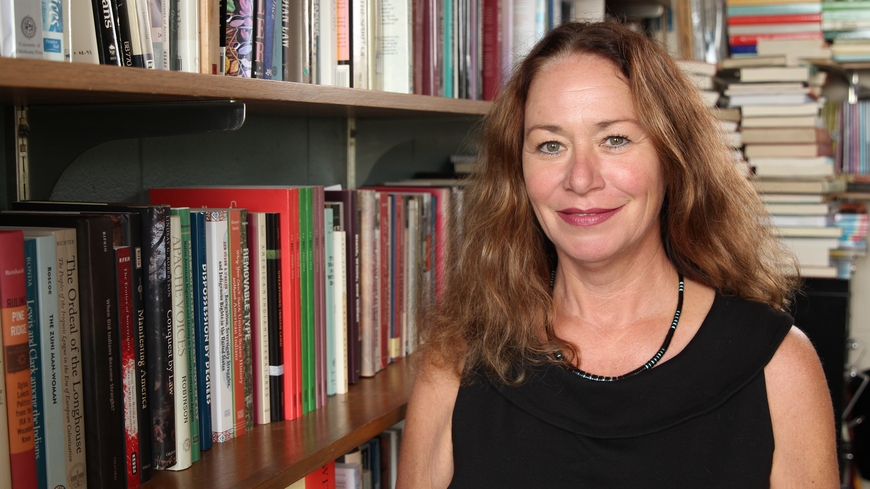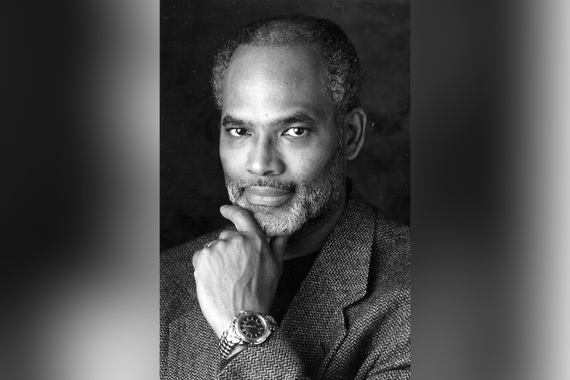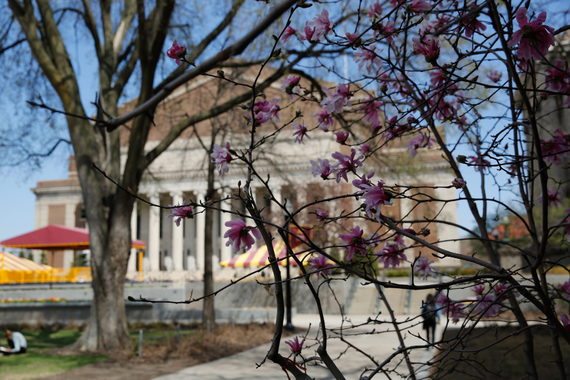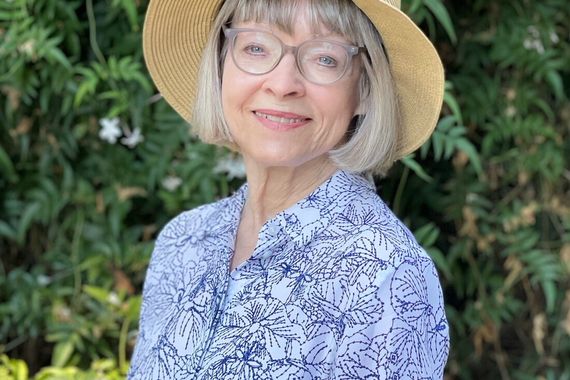Reviving Memory, Creating Change
For Professor Jean O’Brien, what began as a desire to explore her American Indian heritage has developed into a career as an esteemed historian, scholar, and mentor.
A citizen of the White Earth Ojibwe Nation, O’Brien grew up in southern Minnesota—her mother grew up on the reservation—later going on to pursue a degree in history and American Indian studies.
O’Brien credits luck as the reason she wound up at the University of Minnesota in 1989. In the years since, she has become a fixture in both the Department of History and the Department of American Indian Studies, receiving two McKnight Awards for Land-Grant and Distinguished University Professorship. Her professional accomplishments include six books and numerous publications related to American Indian history and Indigenous studies. She has served as a mentor for hundreds of students, including twenty-five completed PhD students.
O’Brien also lists co-founding the Native American and Indigenous Studies Association (NAISA), the largest scholarly organization of its kind, among her top achievements. Her roles within the organization have included president and founding co-editor of its biannual journal.
Most recently, O’Brien and her colleagues had their proposal approved for a graduate minor in global Indigenous studies within the Department of American Indian Studies. Building off this momentum, O’Brien hopes to see the department expand further with the addition of a PhD program in American Indian studies. “That is something we dream of for the future. I think we have all of the pieces we would need to make that happen.”
The past academic year has been productive for O’Brien, who is on sabbatical, much of which she spent finishing her sixth book, Monumental Mobility: The Memory Work of Massasoit. The book, written in conjunction with her former graduate student Lisa Blee, explores the placement—and accompanying national myth—of statues depicting the Pokanoket chief, associated with the mythology surrounding the First Thanksgiving.
This book, along with much of O’Brien’s career, has been focused on correcting the narrative of American Indians, a people often riddled with misconceptions—or excluded from the narrative altogether.
“This is driven by the idea that Indians need to be a certain way, look a certain way, do certain things in order to be authentic: have feathers and buffalo and horses. It is in people's minds that if you change, you're less Indian. That is a diminishment of who we are; it denies us the right to history, the right to change and determine our own lives and futures.”
O’Brien’s forthcoming project Allotment Stories: Indigenous Responses to Settler Colonial Land Privatization, is an edited volume of what she considers one of the most important stories in indigenous history. The idea stemmed from personal experience: O’Brien’s family was among the many whose land was broken from tribal possession, privatized, and eventually lost.
Keeping with the theme of family history, O’Brien is in the beginning stages of a research project that will tell the story of her family and White Earth, combining archival information with journal entries penned by her grandmother. “These were always stories she told. These were family stories that I grew up with.”
Come fall semester, O’Brien will return to the classroom to instruct a graduate seminar in American Indian and Indigenous history in addition to American Indian History: 1830 to the Present, an undergraduate course that has become especially topical in recent years.
In her 2017 spring semester undergraduate course, students watched as textbook terms such as settler colonialism played out in real time in the form of the Dakota Access Pipeline protests, a learning mechanism O’Brien saw as both great course material and a heart-wrenching reality. “[#NoDAPL] was really tangible and disappointing, but also a way to show how these things operate, stemming from the past into the present and future.”
O’Brien’s goal as a professor is for her students to gain a deeper understanding of American Indian History, a topic many come into class not knowing much about. “I really care about my students and want them to be engaged with learning. I like to challenge them, but I also like to work with them. I try to make things fun, as well, even though it is sometimes a really tough subject matter.”
Along with that subject matter, O’Brien hopes one other lesson resonates with her students: the importance of persistence, even in times of uncertainty. “Even though it looks like things are not going your way, giving up is not an option; learning and trying to figure out how to do something about it is.”



